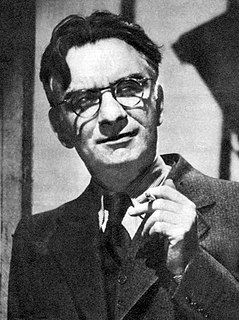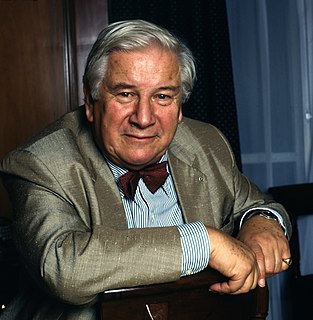A Quote by John Locke
The mind is furnished with ideas by experience alone
Quote Topics
Related Quotes
Let us suppose the mind to be, as we say, white paper, void of all characters, without any ideas; how comes it to be furnished? Whence comes it by that vast store which the busy and boundless fancy of man has painted on it with an almost endless variety? Whence has it all the materials of reason and knowledge? To this I answer, in one word, from experience.
You can indeed be aware of your body, but you can also be aware of your mind - you can right now notice all the thoughts and ideas and images floating in front of the mind's inward eye. You can, in other words, experience your mind, be aware of your mind. And it's very important to experience your mind directly, cleanly, intensely, because only by bringing awareness to the mind can you begin to transcend the mind and be free of its limitations.
The mind being, as I have declared, furnished with a great number of the simple ideas conveyed in by the senses, as they are found in exterior things, or by reflection on its own operations, take notice, also, that a certain number of these simple ideas go constantly together... which, by inadvertency, we apt afterward to talk of and condier as one simple idea.
The ordinary method of education is to imprint ideas and opinions, in the strict sense of the word, prejudices, on the mind of the child, before it has had any but a very few particular observations. It is thus that he afterwards comes to view the world and gather experience through the medium of those ready-made ideas, rather than to let his ideas be formed for him out of his own experience of life, as they ought to be.
I say that creeds, dogmas, and theologies are inventions of the mind. It is the nature of the mind to make sense out of experience, to reduce the conglomerates of experience to units of comprehension which we call principles, or ideologies, or concepts. Religious experience is dynamic, fluid, effervescent, yeasty. But the mind can't handle these so it has to imprison religious experience in some way, get it bottled up. Then, when the experience quiets down, the mind draws a bead on it and extracts concepts, notions, dogmas, so that religious experience can make sense to the mind.
Experience is, for me, the highest authority. The touchstone of validity is my own experience. No other person's ideas, and none of my own ideas, are as authoritative as my experience. It is to experience that I must return again and again, to discover a closer approximation to truth as it is in the process of becoming me.
You experience life alone, you can be as intimate with another as much as you like, but there has to be always a part of you and your existence that is incommunicable; you die alone, the experience is yours alone, you might have a dozen spectators who love you, but your isolation, from birth to death, is never fully penetrated.
Poetry is a way of being alone without feeling alone. It allows you to experience another mind, I suppose. And it does that more fully than other art forms, I think. It doesn't simply describe an experience, or a feeling, or a moment: it evokes it through, say, rhythm or tone or diction or metaphor. It creates a mood. A poem communicates before it is understood; it's not a fully paraphrasable form, which distinguishes it from other forms of writing.






































